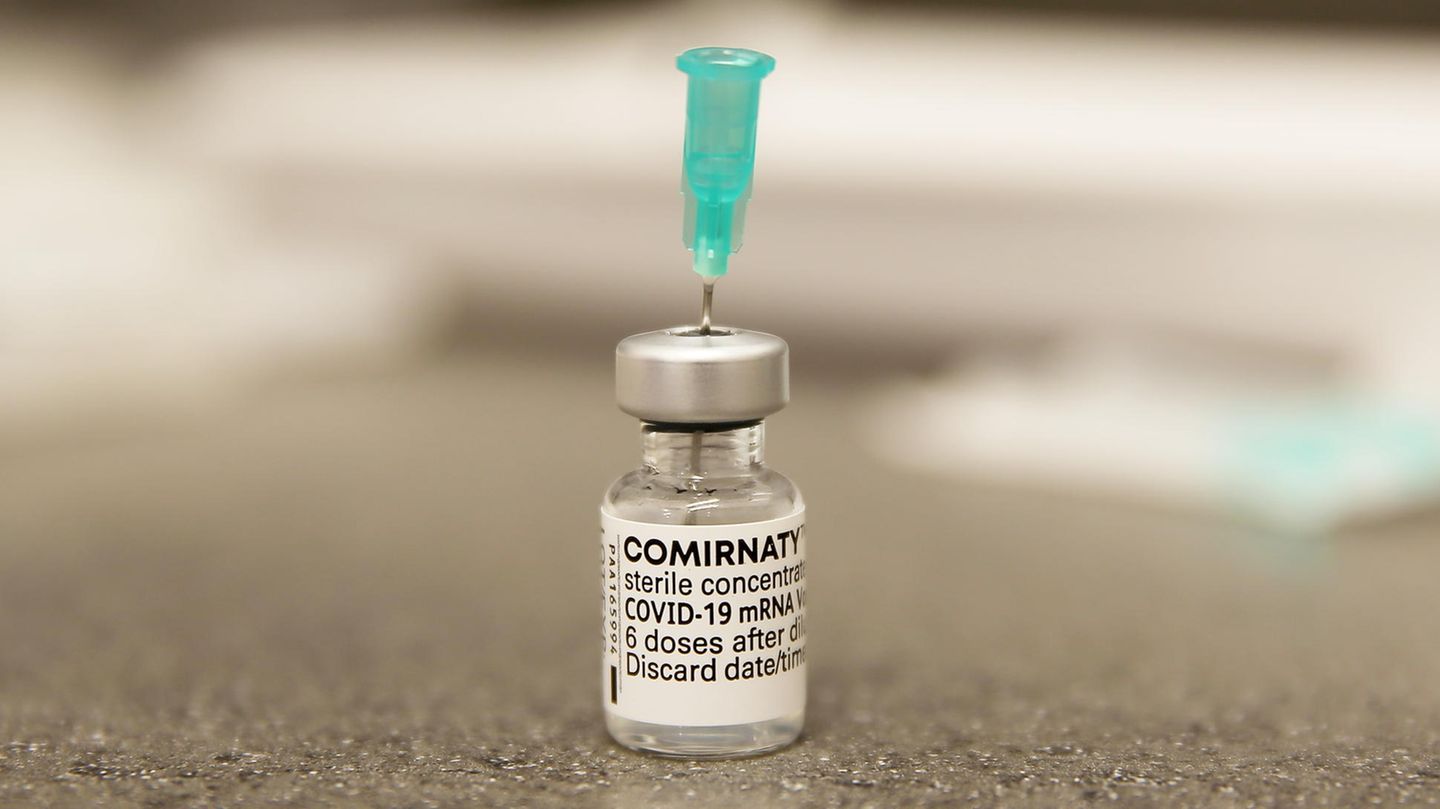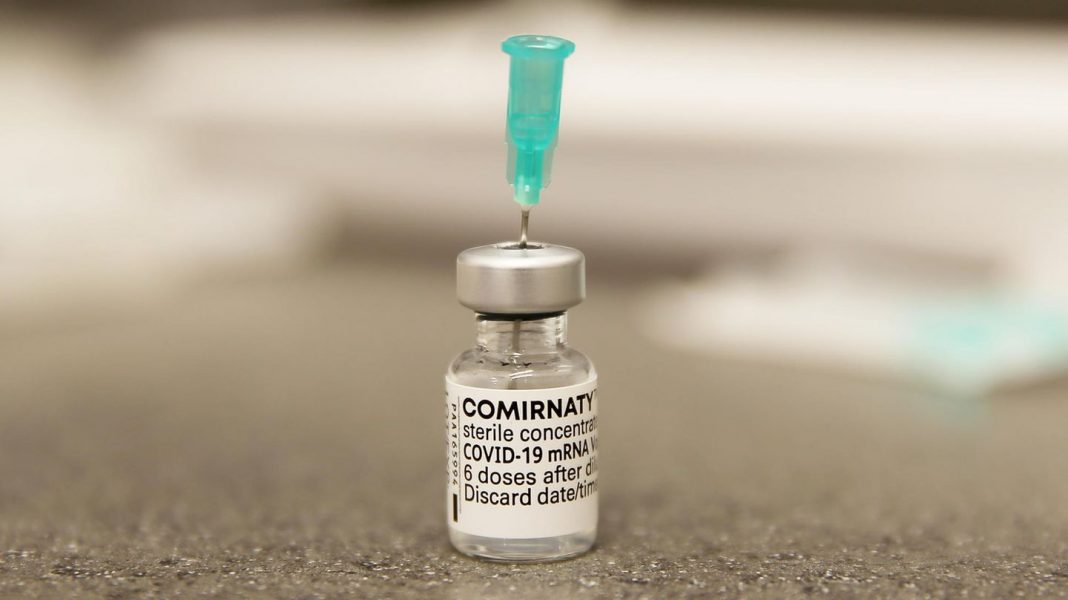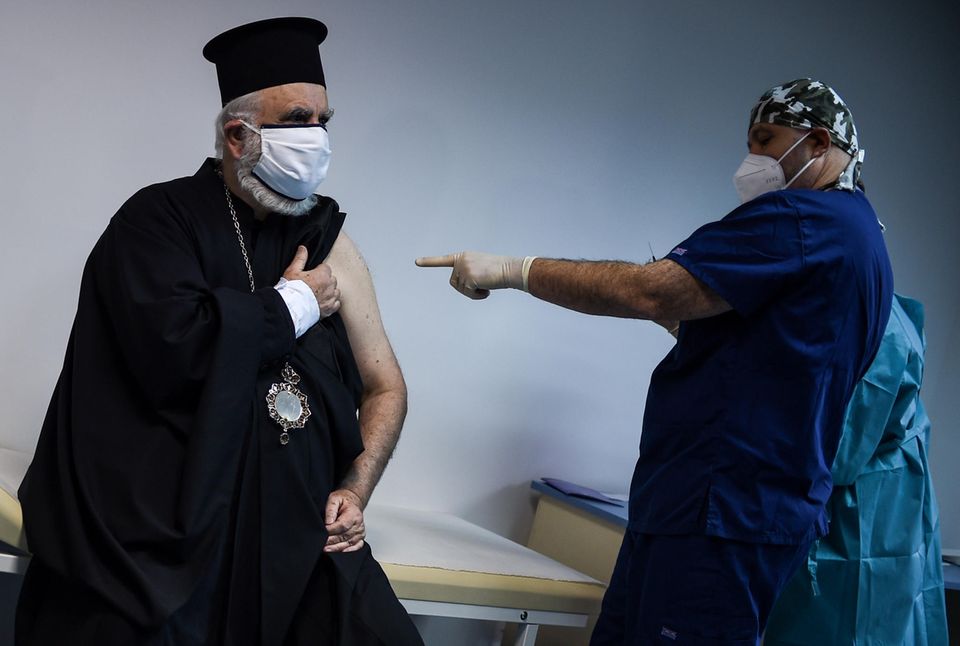Plans of the Federal Ministry of Health
Third corona vaccination: How useful is the “booster” for everyone?

In Germany, only mRNA vaccines are to be used for booster vaccination
© David Young / / Picture Alliance
Older and vulnerable people should be better protected by a third corona vaccination. Do everyone else need the”booster”? More important for the infection process is something else, experts emphasize.
The fourth wave of the corona pandemic in Germany has long since begun. And not only Federal Health Minister Jens Spahn (CDU) is publicly thinking about offering all citizens a booster vaccination. Experts emphasize that such a booster vaccination should initially be allowed to elderly people and other risk groups. For the infection process, it is also more important to vaccinate those people who have not yet received a vaccine.
Countries such as the US and Israel have already opted for booster vaccinations for all citizens. How useful would a third vaccination be for everyone in view of the impending infection in autumn and winter in Germany?
More antibodies after”Booster”
According to Carsten Watzl, immunologist at the Leibniz Institute for Occupational Research at the Technical University of Dortmund, the answer to this question is differentiated: “From an immunological point of view, this makes a lot of sense: the immune system significantly improves the immune response to a pathogen every time it comes into contact with it.”On the one hand, a booster vaccination would mean a longer-lasting immunization because of a larger number of memory cells. On the other hand, vaccination protection is also stronger because significantly more antibodies are present.
According to Watzl, who is also Secretary General of the German Society of Immunology, booster vaccinations pose problems both ethically and virologically: “There is still a shortage of vaccines worldwide. More people die as a result of this than would be saved in this country by a third vaccination.”In addition, the virus mutates especially where it can spread unhindered. “There is a correlation between the number of virus mutants and the vaccination status of a country: especially in countries where the vaccination rate is very low, we observe a much higher mutation rate.”
In view of the discussion about booster vaccinations, the World Health Organization (WHO) recently appealed to distribute the existing vaccines to vulnerable people worldwide. “Offering booster shots to a large proportion of the population, even though many have not yet received even a first dose, undermines the principle of national and global justice,” says a WHO statement. Prioritizing booster doses over rapid and comprehensive first dose delivery could also affect the prospects of global pandemic containment, with serious consequences for the health and social and economic well-being of people worldwide.
“Booster” for everyone?
Nevertheless, it was reported last week that the Federal Ministry of Health is considering offering all citizens a booster vaccination. The federal states are already starting step by step with booster vaccinations in care facilities and for particularly vulnerable people, according to Federal Health Minister Jens Spahn in an interview with the Redaktionsnetzwerk Deutschland (RND).
Especially for older people as well as for people from other risk groups, this is also medically useful, emphasizes the infectiologist Leif Erik Sander with reference to the interim results of a study recently published as a preprint by his research group Infection Immunology and Vaccine Research at the Charité in Berlin. This confirms that the immune response of older people to vaccination decreases significantly more than in younger people.
Four out of ten people in a group whose average age in the study was 82 years were no longer able to detect neutralizing antibodies against the delta variant after half a year. In comparison, the research group also determined antibody levels in Charité staff who were on average 35 years old. They still had over 97 percent neutralizing antibodies against the delta variant-although both study groups had been vaccinated with the same vaccine (Biontech) at the same time.
A significant difference was also found in the T-cell response. “Overall, these results suggest that the established two-dose vaccination regimen produces fewer permanent immune responses in the elderly compared to young adults,” the preprint states. According to Sander, the recommendation to boost older people again is absolutely understandable. Especially since their risk of getting seriously ill is increased a hundredfold depending on the age group.
Apart from risk groups and possibly their environment, however, no one who has only recently been vaccinated currently needs a third vaccination, said Sander. Of course, booster vaccinations could reduce the number of breakthrough infections, as a study from Israel recently showed. “However, the vaccination of previously unvaccinated people has a much stronger influence on the infection process than a third vaccination for young healthy people,” underlines the infectiologist.
At least half a year distance
In addition, when refresher, it should be noted that the distance to the second vaccination should be at least half a year. “You should wait that long so that the memory cells calm down, “says Carsten Watzl and continues:” I could well imagine that we would come to the realization that a corona vaccination needs three injections: a second six to eight weeks after the first and a third after another six to eight months.”This principle of three doses of vaccine is also known from other vaccines, which are administered approximately in childhood.
For the third dose, however, a smaller dose could be sufficient, as a team led by epidemiologist Benjamin Cowling from the University of Hong Kong recently noted in the journal “Nature Medicine”. This process, called” fractionation”, is already known from other vaccines and, according to the authors of the study, could be a possible solution to the global shortage of vaccines, which has not yet been given sufficient attention and consideration.



